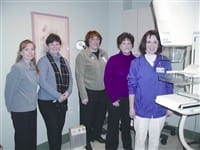How Hospitals Can Help Address Hunger in the Commonwealth
As a medical community, we strive to improve our patients’ mental and physical well-being by attending not only to their symptoms, but also to their surroundings. The current economic situation brings into focus an underlying issue in our society: food insecurity. Food insecurity is defined as a state of being unable to afford nutritious food for a healthy, active life.
Millions of Americans struggle to provide food for their families. According to a recent survey by the New York Times, 6 million Americans have no income other than food stamps. In Massachusetts specifically, between 2004 and 2006, 8{06cf2b9696b159f874511d23dbc893eb1ac83014175ed30550cfff22781411e5} of residents faced food insecurity, with at least 3{06cf2b9696b159f874511d23dbc893eb1ac83014175ed30550cfff22781411e5} of these frequently going without food and facing chronic hunger. It is easy to imagine that the number has grown since 2006 due to the protracted economic downturn.
Poor nutrition has widespread effects on an individual’s health. It can exacerbate an underlying condition, cause a specific micronutrient deficiency, or contribute to learning and behavioral problems in childhood.
These ramifications of hunger, combined with the unique ability of hospitals to reach out to large populations, were the impetus for a handbook created recently at UMass Medical School entitled Hunger in the Commonwealth: Ways Hospitals Can Help. The handbook provides a list of resources in the community, suggests ways for hospitals to connect patients to the resources they need, and explains how Massachusetts hospitals have already taken steps to fight hunger.
UMass Memorial Health Care, for example, has begun screening patients for eligibility for nutritional assistance programs and offers in-hospital assistance with applications for these programs. In 2010, screening will be piloted in several UMass Memorial primary-care practices.
UMass also plans to incorporate and enhance hunger awareness education for medical students, residents, and nursing students, as well as staff and physicians.
Perhaps the greatest nutritional problem facing our patients today is obesity, something that is certainly on many physicians’ minds. However, undernourished patients continue to exist in Massachusetts, and they may be reluctant to seek help from the medical community.
And, while it might seem paradoxical, hunger and obesity are often directly linked. Since the most nutritious foods, such as fish and fresh fruits and vegetables, are also among the most expensive, low-income families cross these items off their shopping lists and instead stretch their food dollars by purchasing inexpensive, filling foods that are high in carbohydrates, sugar, and fat — in effect, trading food quality for food quantity.
Great initiatives have already been undertaken in our state to promote food security, and continued attention to this issue will help reduce the burden of chronic hunger on our patients in the future. To download the handbook or for more information, visit www.projectbread.org. –
Diana Bradford, a 2010 graduate of UMass Medical School, serves on the Mass. Medical Society’s committee on nutrition.

